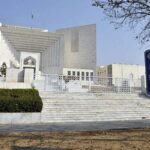ISLAMABAD, Dec 20 (APP):The Benazir Income Support Programme (BISP) Wednesday held its first consultative workshop on usage of the proramme data for policy making and research in which leading policy-makers and researchers from academia, civil society, federal and provincial government departments participated.
Chaired by Minister of State and Chairperson BISP Marvi Memon, the workshop was attended by Secretary BISP Omar Hamid Khan, senior officials, representatives from Quaid-e-Azam University, Lahore School of Economics, Pakistan Institute of Development Economics, Planning Commission, Education Department KPK, Punjab Social Sector Authority and Alif Ailan. Development partners of BISP such as World Bank and DFID also attended the workshop, said a press release here.
On the occasion, Marvi Memon said BISP data employed six international standards of a model database including accuracy, validity, reliability, timeliness, relevance and completeness. The workshop would help explore research areas for formulating future policies in various disciplines namely health, education, agriculture and environment.
In a presentation, the participants were briefed that BISP was the custodian of different data sets pertaining to NSER, Unconditional Cash Transfers (UCT) and Conditional Cash Transfers (CCT).
The BISP holds the data of 27 million households across Pakistan, out of which 7.7 million families have been identified to be eligible for financial assistance, while 5.6 million are receiving BISP’s quarterly stipend.
Under the CCT, as many as 1.8 million children had been enrolled in primary schools.
The participants were also apprised of the technological innovations and range of variables being adopted in BISP resurvey for NSER update.
They were informed that BISP had a data sharing protocol with other organizations and currently more than 45 government and private organizations are utilizing BISP data for various development projects.
The BISP Secretary said the aim was to make 2018 (10th years of BISP), a year of excellence for the BISP.
The BISP encourages policy makers and researchers to use National Socio-Economic Registry (NSER) data for designing policies especially related to SSN programmes. The BISP, itself, is in the process of designing and implementing fresh initiatives of ‘BISP Graduation Model’ and ‘Endowment Fund’ which would add to the existing welfare initiatives of BISP.
The organization is also expanding its CCTs programme to include nutrition, health and mother-child care aspects.
During the brainstorming session, the participants discussed that there is a need of research collaboration between BISP and other organizations, besides conducting seminars on the BISP in different universities which would create awareness about the contribution of BISP and its different data sets.
Moreover, a summary of research projects on the BISP should be placed on the BISP website for students and researchers.
It was also suggested that BISP data should be updated after every three years. A suggestion on interventions based on BISP data for different age groups was highly appreciated.
According to the suggestion, programmes like childhood nutrition, literacy and special education for primary school children, skill development for youth and social welfare for old age beneficiaries were put forth. It was also suggested that the BISP data should be utilized for providing subsidies to deserving population in electricity, railway fares and utility stores.
The BISP Chairperson lauded the suggestions presented by the participants and stated that this workshop would assist the BISP in taking concrete steps.
She directed her team to coordinate with specialized organizations through provision of the BISP data for designing development projects.
She also directed to work out proposals of providing subsidies to the deserving people by coordinating with concerned departments.





